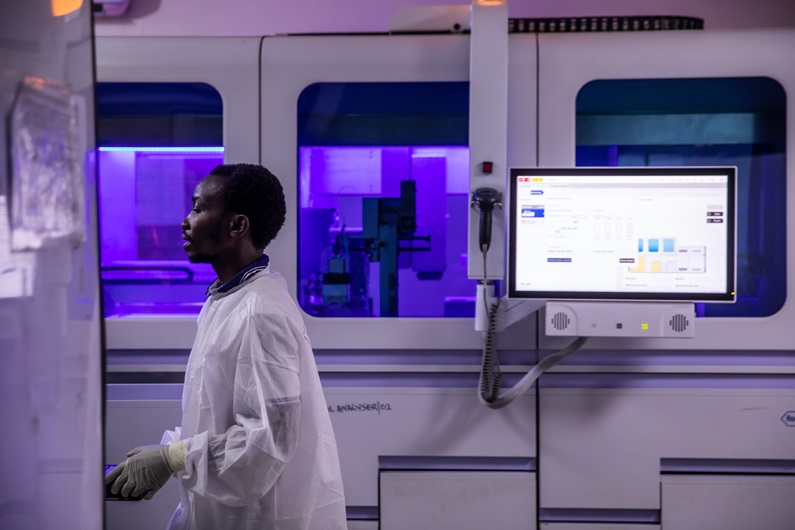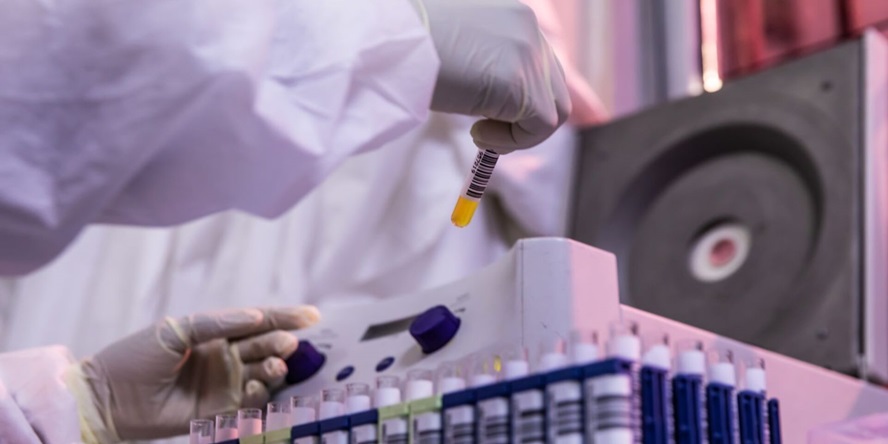Twenty-four-year-old Theresa moved from her hometown in western Nigeria to the capital, Abuja, hoping to get a job and save money so she could return to school. But applications for several sales jobs ended in failure. Confronted with the harsh reality of unemployment, Theresa resorted to sex work.
Four years later, her life took another turn. “I became very sick and was taken to the hospital, where I spent several days on admission,” she said. Tests revealed that she had HIV. Theresa felt the ground shift beneath her feet as the weight of her diagnosis bore down upon her. “I was shocked to hear that I had HIV and would have to take medicine for the rest of my life.”
Sex workers living with HIV are among the hard-to-reach key populations in HIV case management. They are often reluctant to visit health facilities for routine viral load tests for fear of discrimination and stigma. Following counselling from health workers, Theresa started receiving antiretroviral therapy and getting periodic viral load tests at a remote clinic outside the city, where no one would recognize her. For three years, she travelled to and from the clinic for her care and treatment until she could no longer afford the recurrent cost of transportation. Eventually, she discontinued her routine treatment and viral load testing.
Theresa’s challenges reflect those of thousands of key populations living with HIV who fear stigma and face other barriers to vital laboratory testing services, including female sex workers, men who have sex with men, and people who inject drugs.
Laboratory services are a key component of a comprehensive health system, providing essential diagnostic services so patients receive appropriate medical care. With support from the U.S. President’s Emergency Plan for AIDS Relief (PEPFAR) and USAID, the Chemonics-implemented USAID Global Health Supply Chain Program-Procurement and Supply Management (GHSC-PSM) project plays a leading role in helping countries expand and transform laboratory services to be more cost-effective, efficient, and responsive to patient needs.

In Nigeria, GHSC-PSM, in collaboration with the Ministry of Health, established 56 community-based one-stop shops to scale up HIV prevention, treatment, and care for key populations. These one-stop-shops cater to more than 79,000 people and are designed to meet people where they are. “Instead of waiting for them to come to us, we move to the streets to counsel them, give them antiretroviral therapy, and collect their specimens for viral load testing,” said Joffrey Okoeguale, the laboratory focal person at one of the community one-stop shops in Abuja.
However, transporting specimens collected on the streets to the laboratories was a significant challenge for Joffrey’s team. “We collected samples at night, and by that time, we can’t take them to the laboratories for analysis,” he added.
To address this challenge, the Ministry of Health, with support from PEPFAR and the Global Fund, conducted a diagnostic network optimization exercise and established the optimized National Integrated Specimen Referral Network (NiSRN) as a solution to improving patients’ access to viral load, tuberculosis, and other laboratory testing services. Demand soon grew for reliable specimen transport services to move samples between the laboratories and points of care.
GHSC-PSM sought to meet this need by initiating a private-sector partnership with NiSRN. The project contracted third-party logistics companies that engaged motorcycle riders and transporters to implement a quick, efficient, and safe system for collecting and transporting patient specimens from collection centers to laboratories and transporting the results back to the requesting facilities. As a result, NiSRN ensures a responsive and agile routing of the samples via the primary and secondary lab arrangement and through bulk shipments to ensure that results are available in a timely manner for clinical decisions.
Between 2020 and 2024, NiSRN facilitated the transport of over 333,000 specimen samples from one-stop shops to testing laboratories.
This coordinated system allows for more patient testing and improved viral load monitoring, especially for key populations and people living in remote areas. Between 2020 and 2024, NiSRN facilitated the transport of over 333,000 specimen samples from one-stop shops to testing laboratories.
This improved access has made life a little easier for Theresa, who no longer has to spend money to travel for antiretroviral therapy and testing services. “This USAID initiative saves me the stress and time as I no longer have to travel to that remote village for tests and treatment,” she said. “I feel much better.”
Banner image caption: Examining specimens in a GHSC-PSM-supported lab in Lagos, Nigeria. The photo was taken by Toyin Adedokun for Chemonics.



